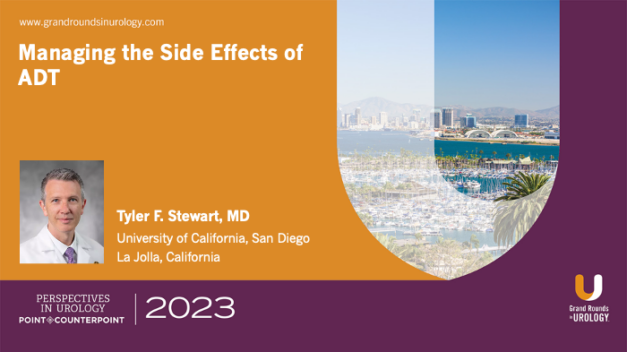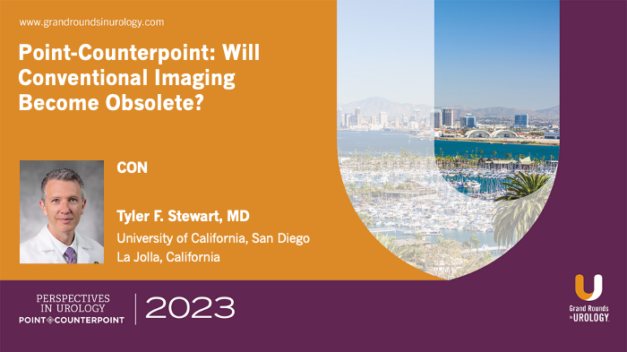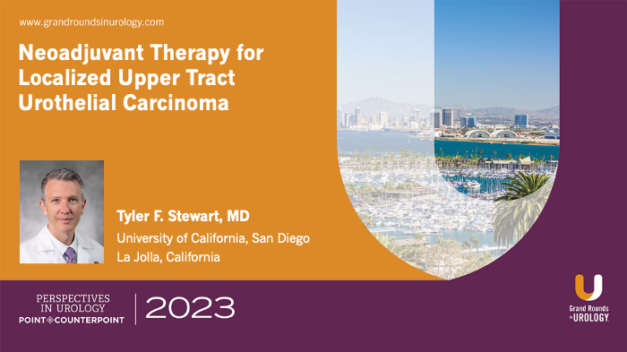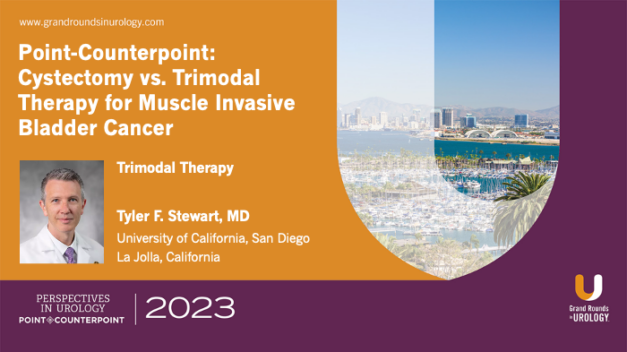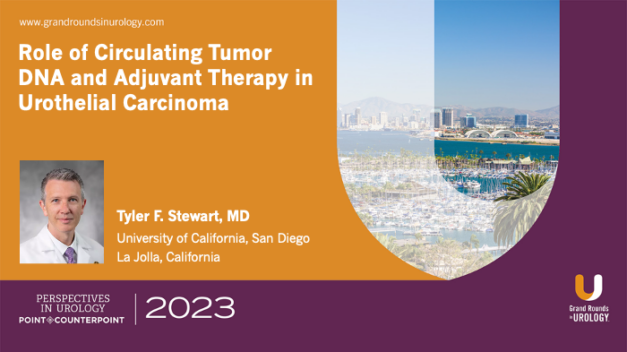Managing the Side Effects of ADT
Tyler F. Stewart, MD, discusses the management of the side effects of androgen deprivation therapy (ADT) in prostate cancer patients. Dr. Stewart begins by focusing on four common side effects of ADT: Fatigue, weight gain, osteoporosis, and hot flashes.
He first focuses on fatigue, a clinically relevant or severe side effect in 57 percent of patients, and weight gain. For patients who are obese at baseline, 70 percent will gain 10 or more pounds after six months of ADT.
Dr. Stewart explains that for both the fatigue and weight gain, exercise is the most important treatment, describing a randomized trial that examined resistance training and resistance and cardiovascular exercise vs. usual care. Results showed that fatigue was reduced and vitality increased with both exercise regimens.
He then turns to the risk of osteoporosis and explains that osteoporotic fractures occur in 20 percent of men by five years after starting ADT. He recommends calcium and vitamin D, bone mineral density evaluations, exercise with resistance, and consideration of osteoclast inhibitors or denosumab for patients with osteoporosis or osteopenia with a high fracture risk assessment tool (FRAX) score.
Finally, Dr. Stewart addresses hot flashes which, if they are affecting patient quality-of-life, can be treated with venlafaxine, gabapentin, oxybutynin, or medroxyprogesterone acetate. However, Dr. Stewart cautions against the use of medroxyprogesterone acetate because of the risk of cancer progression as a side effect.
Read More
